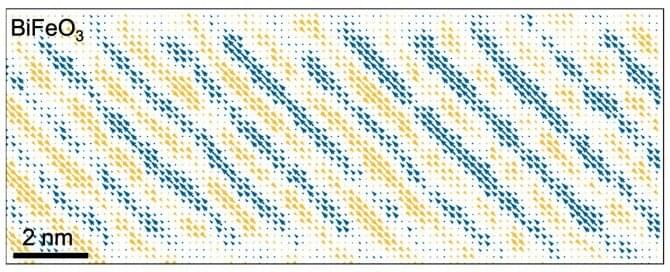Conventional batteries are a lot like camels. They’re great for storage and transportation, but they’re not exactly speedy.
For technologies that require a fast discharge of energy, such as heart defibrillators, alternative materials are often used; foremost among them, antiferroelectrics.
There is only a handful of known antiferroelectric materials, and most of them contain lead, so they aren’t safe enough for everyday applications. Now, a Cornell-led collaboration has discovered a new approach for making a lead-free antiferroelectric that performs as well as its toxic relatives.
